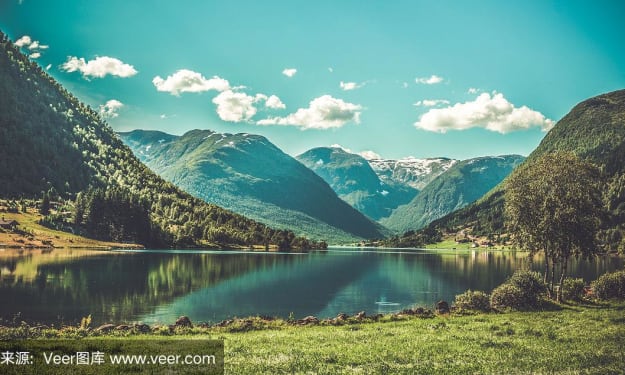Three years have passed since the town was lost in the forest. At first, nobody noticed. They were so far from civilisation that it was rare for outsiders to arrive unannounced. When Dolores’ extended family didn’t appear for her 60th birthday celebrations, she sighed and lamented her life of sorrows, a destiny imprinted on her the day of her christening. A week later, when Father Julio, an old friend of our Father Santos, failed to arrive for a long-planned visit, he simply shrugged and said God must have called him elsewhere. But after three weeks, when there was no sign of Carlos con la Camioneta and his supplies from the city, people started to fret.
“I need my French face cream!” cried Maria la Bella, shaking an empty pot at her sisters in despair.
“I knew Carlos would not bring me those novels,” Maria la Triste sniffed, tears pricking at the corners of her eyes.
“I will die without my sun lotion,” Maria la Blanca exclaimed dramatically, shrinking further back into the shade of the veranda.
“I’ve been waiting for my science journals so long that they’re probably out of date now,” mused Maria la Lista, the most studious of the family.
The other sisters joined in, moaning and wailing about what they had been expecting and how they couldn’t survive without Carlos and his camioneta of delights.
Soon, the whole town was aflame with complaints and rumours of what might have happened. Young boys acted out the scenes of Carlos being hijacked by bandits in the forest, fighting back bravely to protect books and chocolates and European makeup before finally succumbing to his mortal wounds. Elderly ladies broke out their rosary beads and headed to church to pray for his health and safe return, convinced he must be afflicted with a tropical disease picked along the route. Middle-aged men gathered in the taverna to knock back beers and stare daggers at each other, cursing Carlos for swindling them out of their hard-earned money.
Maria la Tímida drifted around town and listened, unnoticed, to the stories and grumblings. Nobody ever paid her much attention. She was the shy one of the sisters, the quietest of the seven Marias, and was able to slip into places she shouldn’t be able to get into and hear things she shouldn’t be able to hear.
“We’re lost,” whispered Maria de las Nubes in her ear.
“What do you mean?” she asked patiently. Conversations with Maria de las Nubes required a lot of patience, as she only really had one foot in this world and one foot in the other.
“The town is lost,” she replied dreamily. “No one can find us.”
Maria la Tímida checked her phone. Sure enough, the town had vanished from the map. She zoomed and panned around the spot where the town should be. There was no name. No streets. No birds-eye-view of houses built over hundreds of years in the middle of the rainforest. No flashing blue dot where she should be standing. Nothing. Her head whipped up in shock and her eyes met Maria’s ethereal smile.
Legs trembling, she went to find her parents. They were sitting in the town hall with the mayor. As parents of some of the very few young people left, and seven girls no less, they were well-respected in the town and close with Mayor Reyes. Maria personally found him intolerable with his superior attitude and his belief that his name meant he was born to rule, but they seemed to like him.
“I know why Carlos didn’t make it back,” she announced boldly.
The assembled townspeople stared at her in surprise.
“It’s not often we hear from you, Maria la Tímida,” said Mayor Reyes in his patronising way. “What do you know about Carlos?”
“Not just Carlos,” she replied, mustering her courage. “Everyone. All those who were supposed to visit this past month.”
The congregants began to whisper furiously, and she suddenly felt intimidated.
“Tell us, Maria,” her father prodded gently with a kind smile.
She took a deep breath and continued, “The town is lost. We’ve disappeared. Nobody can find us, and I don’t think anybody can leave either. We’re no longer on the map. There are no roads in or out. There’s nothing. Just rainforest.”
Mayor Reyes snorted in disbelief. “Impossible.”
“Look!” She thrust her phone under his nose, open to the map app.
“Maria, Maria, Maria. You can’t trust these things. They’re always, what do you call it, glishing?”
“Glitching, Mayor Reyes.”
“Yes, yes, whatever. Modern technology simply can’t be trusted. It’s completely unreliable. How can it possibly be up to date and have the correct information without any wires?”
“Let’s look in the atlas then.”
The mayor raised an eyebrow, then strode over to his desk to pull out an atlas. He still preferred the old ways, as did almost everybody else in this small settlement.
The town was founded a couple of hundred years ago by a man who grew tired of city life and wanted to live in the heart of nature. Whole generations were born and died never leaving it, never knowing the outside world. It took many decades and several enterprising risktakers for the modern world to finally penetrate. Even now, most of the town preferred the traditional ways, and only the youngest citizens had adopted what Carlos told them were all the rage in the rest of the country, mobile phones.
Mayor Reyes slammed the atlas down on the table and whipped the page open to where the town should be. His eyes widened and his mouth fell open. It was gone from the atlas too.
“This isn’t possible,” he stammered.
There was uproar as the meeting participants clamoured to see the atlas, exclamations and curses flying forth and ladies crossing themselves fervently.
“No one can leave,” scoffed Gil Guacamayo. “I caught two macaws yesterday, and I’m taking them to the city tomorrow. I know this forest like the back of my hand. I know every inch of it. Every tree, every river, every plant, every animal, every hollow, every nest, every den. I don’t need an app or an atlas to find my way around.”
“How long will it take to travel there and back?” Mayor Reyes asked the animal trader.
“About five days.”
“Good luck then. We’ll reconvene when you return.”
Maria la Tímida left the gathering and wandered home through the empty streets. Most people were in the taverna or restaurant or church by now, swapping stories and gossip. She found Maria de las Nubes on Gil’s veranda, talking to two dazzlingly beautiful scarlet macaws in large cages.
“Maria! Don’t stick your fingers through the bars, they’ll take them off.”
“They won’t bite me,” she replied softly, stroking the vibrant plumage of the closest bird. A tear tracked slowly down her luminous cheek.
“What’s the matter?” Maria asked, wrapping an arm around her shoulders. It was odd to see her sad; it was usually Maria la Triste who had to be comforted.
“They told me they are missing their families. They heard about a new stash of nuts and went to investigate. Next thing they know, here they are in a cage. Now their partners are all alone, with no idea what has happened. It’s heartbreaking.”
Maria looked through the open door into Gil’s opulent living room, covered in Turkish rugs and Chinese tea chests and Italian fabrics.
“It’s terrible what Gil does,” she said gently. “But he’s taking them into the city tomorrow. We’ll soon find out if the town is really lost.” But Maria de las Nubes wasn’t listening anymore. She was lost in her own way.
-------------
Two days later, Gil staggered back into the town square, confused and disorientated. Mayor Reyes came rushing out of his office, and a crowd gathered to hear the news.
“What happened, Gil?”
“I… I don’t know. I was walking through the forest, I was following one of my trails, but I ended up back here. It all looked the same. There was nothing to distinguish one tree from another. My markings were gone. The distinctive hollows were gone. The old nests were gone. I was walking and walking in the direction of the city, but somehow I’m here again.”
“We need to send out a team,” the mayor declared. “There’s no more time to waste. We need to reestablish our link with the city. We’ll do this the proper way – compass and atlas in hand. We know where we are, even if we’re no longer on the map. Do I have any volunteers?”
Around ten people from the assembled onlookers raised their hands.
“Excellent. Go make a pack. Enough food for five days, tents, clothes, compass, maps. We’ll leave in 30 minutes.”
---------
By nightfall, the team of ten expeditioners were back, exhausted and perplexed. The crowd had not really left since that morning, and had brought food and chairs to the square to sit and speculate and await news of the wanderers. Gloria, the owner of the taverna on the corner, was thrilled to be doing a roaring trade that day, but her smile faded when she saw the bedraggled travellers limp back into the square. She brewed a lot of things herself, but she still relied on deliveries from the city. She’d soon run dry if they couldn’t get through.
“We are being punished for our immoral behaviour!” cried Father Santos, gesticulating wildly at the mountains of empty glasses and the youths who had fallen into a drunken sleep on the town hall steps. “He has cut us off from civilisation until we repent and correct our wicked ways!”
“No, Father, it’s not that,” came a barrage of replies.
“Jesus was a drinker!”
“He turned water into wine! He’s got nothing against alcohol.”
“We drink wine in church, Father!”
Mayor Reyes summoned the last of his energy and drew himself up to the full height of his authority.
“I think that’s enough for tonight, Gloria. Everybody go home and sleep it off, and I want the whole town in mass tomorrow at 10 am.”
--------
The next morning, everyone arrived at church with pounding heads and scratchy throats. To prolong the punishment and drive the lesson home, Father Santos stretched his sermon out to over an hour and lined everybody up for a confession before leaving. It was nightfall before the confessions were finished. Father Santos gave a satisfied smile as he watched the last of his flock scurry home. “That should do it.”
However, instead of the deep and peaceful sleep usually enjoyed by the recently confessed and absolved, the town awoke feeling anxious and fatigued.
“I slept terribly,” sobbed Maria la Blanca, her face even more pale than usual.
“I had the most awful dreams,” Maria la Bella moaned, examining with horror the dark circles that had appeared under her eyes.
Maria la Buena made breakfast for the family as usual, brewing strong coffee for them all in an attempt to make up for the lack of sleep. “I dreamed I was in a cage,” she muttered, trying to shake the awful feeling.
“Me too…”
As Maria la Tímida made her way around town, it became clear that everyone had had the same dream.
“Oh, it was the most awful feeling,” Gloria wailed to her patrons. “I couldn’t move, I couldn’t breathe, I couldn’t even stretch my arms! I could barely turn my head. The bars of the cage were so close I could taste them.” She shuddered and shook her head from side to side to try to dispel the memory.
“And the worst thing,” Maria la Vieja sobbed, “Was knowing I would never see my family again. That’s all I felt – despair at a lifetime without my husband or my Marias.”
“Such a hopeless feeling,” agreed Dolores forlornly. “Like I’d never be happy again. Of course, I’ve never been happy in my real life, but at least I can move around freely while I’m miserable.”
The ladies watched apprehensively as a new group of volunteers set out on a different route towards the city.
“We’ll see how far they get this time,” Dolores said bleakly.
----
The women had hardly moved when two hours later the group marched into the other side of the square, scratching their heads in bewilderment.
“It’s time to go see Mama Rosita,” said Gloria to the gathering crowd.
“If mass and confession didn’t help, what can Mama Rosita do?” said Father Santos. “We need to keep praying, keep confessing, keep saying mass. Everyone needs to attend morning and evening mass from now on.”
“Father, this has nothing to do with God,” said Maria la Vieja, clutching the crucifix around her neck. “This is someone else.”
--------
The gaggle headed to the ancient house at the very edge of the town where Mama Rosita lived. She had not been seen for a few years now. Nobody knew how she survived. She didn’t eat at the restaurant, or drink at the taverna, or shop in the store, or place any orders with Carlos con la Camioneta. She didn’t go to church or attend town meetings or participate in any festivals. Nobody knew how old she was, or where her family was. Nobody remembered her as a young person, or even as an old person. She had been extremely elderly for as long as everyone in the town could remember.
As they approached, the house shimmered in the afternoon sun. Vines and tendrils unfurled themselves and wrapped protectively around the veranda. Huge purple and white flowers looked away from the light and turned inquisitively towards the visitors. The trees shook their branches in a warning to the house’s occupant, and they seemed to grow bigger with every step the townsfolk took towards the building.
It was hard to tell where the forest ended and the property began, the trees so close to the building that they seemed to be part of the walls themselves, the leaves and vines covering the top of the building like a bright green roof. It was so different from the surrounding streets, which were plucked, pruned and tamed to within an inch of their life. The only greenery in the rest of the town was the odd flower trapped in a terracotta pot, pressing its roots up against the edges and dreaming of spreading them freely in the fresh ground.
The ladies approached the house first, and the door opened to greet them.
“It took you long enough to get here,” grumbled Mama Rosita, wrinkled hands planted on ancient hips.
“I’m Father Santos,” said the priest, offering his hand to the old lady. “I don’t believe we’ve ever met.”
“I know who you are,” she replied with a dirty look, though how she knew, she didn’t say.
“Mama Rosita, why is this happening? The town is lost! We have disappeared from the map. Nobody can reach us and nobody can leave,” Gloria cried.
“And the dreams,” added Dolores. “Dreams of cages, of being trapped, of being unable to move.”
“I tried for two days to reach the city, walking around in an eternal loop until I ended up back here,” shouted Gil. “It’s a waking nightmare, and then at night the dreams are even worse. There’s no escape.”
Mama Rosita turned her steely gaze on him. He shrank under the ferocity of her glare. “You of all people should realise what is happening, Gil Guacamayo, as you call yourself.” She surveyed the rest of the gathered crowd. “You have no one to blame but yourselves.”
The townspeople looked round at each other, aghast.
“Mother Nature has given you everything,” she roared, a fire blazing in her eyes. “The food you eat, the water you need to live, the wood you build your shelters with. Everything you have and enjoy comes from her. She asks for nothing in return, only that you respect and protect her.
Look what you have done to this part of the forest! You have cleared the trees; you have razed this area to the ground. You have destroyed this part of her precious jungle. You have enslaved her creatures; you have sold them into a life of misery so that you could live a life of luxury. Listen to the sound of the forest!”
The crowd listened, heads bowed in shame.
“What do you hear?” Mama Rosita snapped.
“I hear the clouds whispering to each other.” The voice of Maria de las Nubes floated across the crowd towards Mama Rosita.
“Not you, Maria.” Mama Rosita turned kindly for a moment. “I’m talking to the people who live with both feet on the earth.”
“It is silent,” proclaimed Mayor Reyes.
“Exactly. The forest used to be full of life, full of sound. It was vibrant and alive and joyful. Now it is empty. You have destroyed this part of the jungle. You are the ones who removed it from the map. Mother Nature gave you everything, now she is taking it away.”
“What do we do?” the townspeople begged, ashamed and humbled.
“You know what to do. Live in harmony with Mother Nature. Humans are no more important than any of her other children. Respect the forest. Protect its inhabitants. Conserve its beauty. Now get off my property, and I don’t want to see you again for at least another ten years.”
-------
That evening, everybody, old and young, gathered together in the plaza. Father Santos insisted on saying a mass, because Mother Nature was created by God after all. After the final prayer, they walked to the edge of the forest. Gil set down the cages with the scarlet macaws on the floor. “I’m sorry,” he said simply, and released the birds. As the town watched the magnificent rainbow birds soar high into the sky and away into the forest, Maria la Tímida checked her phone.
About the Creator
Jenifer Nim
I’ve got a head full of stories and a hard drive full of photos; I thought it was time to start putting them somewhere.
I haven’t written anything for many, many years. Please be kind! 🙏







Comments
There are no comments for this story
Be the first to respond and start the conversation.